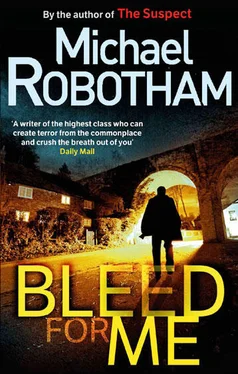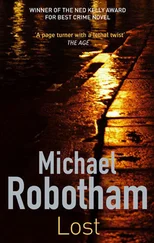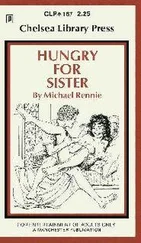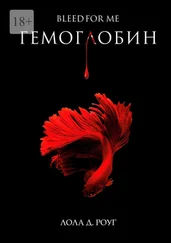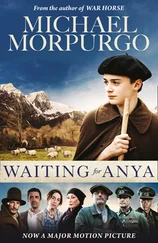‘Fuck you,’ he says, mouthing the words silently.
At that moment the door opens and a young woman appears wearing low-cut blue jeans, sockless trainers and a tight-fitting grey T-shirt that rides up to show a strip of smooth abdomen. Her hair is held back with a band and a toddler perches on her hip sucking on a biscuit.
‘Come on, Dad,’ she says. ‘I’m running late.’
Stan Keating folds his paper and turns on his bar stool, finding his feet. His daughter is gazing at Ruiz and me. A breath of concern clouds her eyes.
Keating points to the men’s room.
‘Hurry up then,’ she says.
He pushes through a door and disappears from view. The woman talks to Brenda behind the bar, consciously ignoring us.
‘Who did that to him?’ I ask.
She looks from my face to Ruiz and back again. ‘Are you coppers?’
‘I used to be,’ says Ruiz. ‘We’re trying to help your father.’
‘Let me guess - he won’t talk to you, so now you’re asking me?’
‘Has he ever mentioned someone called Gordon Ellis?’
‘Never heard of him.’
She picks a sodden crumb of biscuit off her chest and wraps it in a tissue. Shifting the toddler on her opposite hip, she tucks the tissue into the tight pocket on her jeans. She’s not wearing a wedding ring.
‘How old is your little one?’ I ask.
She eyes me suspiciously. ‘Just gone two.’
‘What’s his name?’
‘Tommy.’
‘Must be hard.’
‘What do you mean?’
‘Being a single mum, looking after Tommy and keeping an eye on your dad. Does he live with you?’
‘Yeah.’ She’s anxious now. ‘Who are you?’
‘I’m trying to help a girl who’s in a lot of trouble. She’s not much younger than you. Still at school.’
‘What’s that got to do with us?’
‘Your dad went to collect a debt from a man called Gordon Ellis and that’s how he got hurt. We’re trying to find out who did it.’
The toddler is growing heavy in her arms. She sets him down, holding tight to his hand. Then she looks over my shoulder towards the men’s room.
‘My dad fought in the Falklands with the Paras. Battle of Goose Green.’
‘Second Battalion?’ asks Ruiz.
She nods. ‘They gave him a medal and a piece of paper. What good is that?’
‘He fought for his country.’
‘You know he never stops talking about it - the Falklands. Two months out of his whole friggin life and he can’t forget it. Doesn’t want to.’ She looks from face to face. ‘Sometimes I think he wishes he’d never come back.’
The door to the bathrooms swings open. Stan Keating nods goodbye to Brenda. The machine touches his neck and he looks at his daughter. ‘Let’s go.’
I talk to her urgently. ‘Gordon Ellis preys on underage girls. I’m trying to help one of them.’
‘That’s nothing to do with Dad.’
‘Who did this to him?’
She fingers a silver chain around her neck. ‘He’s never said.’
Keating is already out the door. Reaching down, she picks up her little boy whose hands go around her neck.
‘We heard it was an Irishman.’
She shrugs. ‘I wouldn’t know, but he calls him something in his sleep.’
‘What?’
She draws two fingers down her cheeks leaving white lines that fade to pink on her smooth skin.
‘The Crying Man.’
Sitting in the departure lounge at Edinburgh Airport, I gaze out the terminal window where sheets of rain sweep across the tarmac. Men in yellow rain jackets are walking beneath the fuselage of a jet, loading luggage and food trolleys.
My flight to Bristol leaves in forty minutes. Ruiz has to wait another hour to get to London.
‘You want one of these?’ he asks, offering me a boiled sweet from a round flat tin.
‘No, thanks.’
One of the lollies rattles against the inside of his teeth. He tucks the tin into his jacket pocket. Some people have smells and some have sounds. Ruiz rattles when he walks and creaks when he bends.
I tell Ruiz about going to the minicab office and seeing an Irishman with tattoos that looked like tears. The same man had been outside the restaurant when I had lunch with Julianne.
‘How does Gordon Ellis get protection from someone like that? He’s a secondary-school drama teacher, not a gangster.’
‘He’s a sexual predator.’
‘Yeah and nobody likes a nonce. Not even hardened crims can abide a kiddie fiddler. Ellis wouldn’t last a month inside. Someone would shank him in a meal queue or hang him from the bars.’
‘Maybe the Irishman doesn’t know he’s a nonce.’
I watch a jet land in a cloud of spray and recall a patient of mine who was so scared of flying she tried to open the door of the plane and jump out. It turned out that she wasn’t scared of flying (or crashing). She was claustrophobic. Sometimes the obvious answer fits perfectly, yet it’s still wrong.
‘How is Julianne?’ asks Ruiz.
‘Fine.’
‘You’re still talking?’
‘We are.’
‘You bumping ugly?’
‘She’s started seeing someone else. An architect.’
‘Is it serious?’
‘I don’t know.’
Silence settles around us and I begin thinking about Harry Veitch. When Julianne and I were together, we used to crack jokes about Harry and the way he always insisted on tasting the wine at restaurants, describing the tannins and bouquet. Maybe I was the one who told the jokes, but I’m sure Julianne smiled.
Then I think about last night with Annie Robinson. For years I couldn’t imagine getting up the courage to show my naked body to another woman. Now it’s happened and I don’t know how to feel.
I want to ask Ruiz if it gets any easier. Marriage. Separation. Possible divorce. He’s been there, done that, bought the T-shirt. At the same time I want to avoid the subject. Live in denial.
‘On the day she left me, Julianne said that I was sad; that I’d forgotten how to enjoy life. I looked at Coop today - how he’d stopped living after his daughter disappeared, how he’d given up - and I wondered if maybe Julianne was right about me.’
‘You’re not like Coop.’
‘I keep expecting things to go back to the way they were.’
‘It won’t happen. Take it from me.’
‘You don’t think she’ll take me back?’
‘No, I’m saying it’ll never be the same.’
‘You’re still seeing Miranda.’
‘That’s not the same thing. She’s an ex-wife with benefits.’
‘Benefits?’
‘Perfect breasts and thighs that can crush a filing cabinet.’
I shake my head and laugh, which I shouldn’t because it will only encourage him.
Instead he grows serious. ‘Do you know what makes a good detective, Prof? We’re the suspicious ones. We believe that everybody lies. Suspects. Witnesses. Victims. The innocent. The guilty. The stupid. Unfortunately, the very thing that makes us good detectives makes us lousy husbands.
‘When I was married to Miranda, she put up with my moods and my late nights and my drinking, but I know she lay awake sometimes wondering what doors I was kicking down and what lay on the other side. All she ever really wanted was to have me walk through her door - safe and whole.
‘I think maybe she could have lived with the uncertainty if I didn’t leave a part of myself behind every time. We’d be at a restaurant, or a dinner party, or watching TV and she knew I was thinking about work. It got so bad that sometimes I didn’t want to go home. I used to make up excuses and stay in the office. That’s your problem, Joe - you can’t leave it behind.’
I want to argue with him. I want to remind him I no longer have a home to protect or pollute, but Ruiz would just slap me around the head for being pessimistic and defeatist. It’s one of the things I’ve noticed about him since he retired - he’s become far more pragmatic. He can live with his regrets because one by one he has set them to rights or laid them to rest or made amends or accepted the things he cannot change. When you’ve been shot, stabbed and almost drowned, every day becomes a blessing, every birthday a celebration - life is a three-course meal occasionally seasoned with shit but still edible. Ruiz has learned to fill his boots.
Читать дальше
